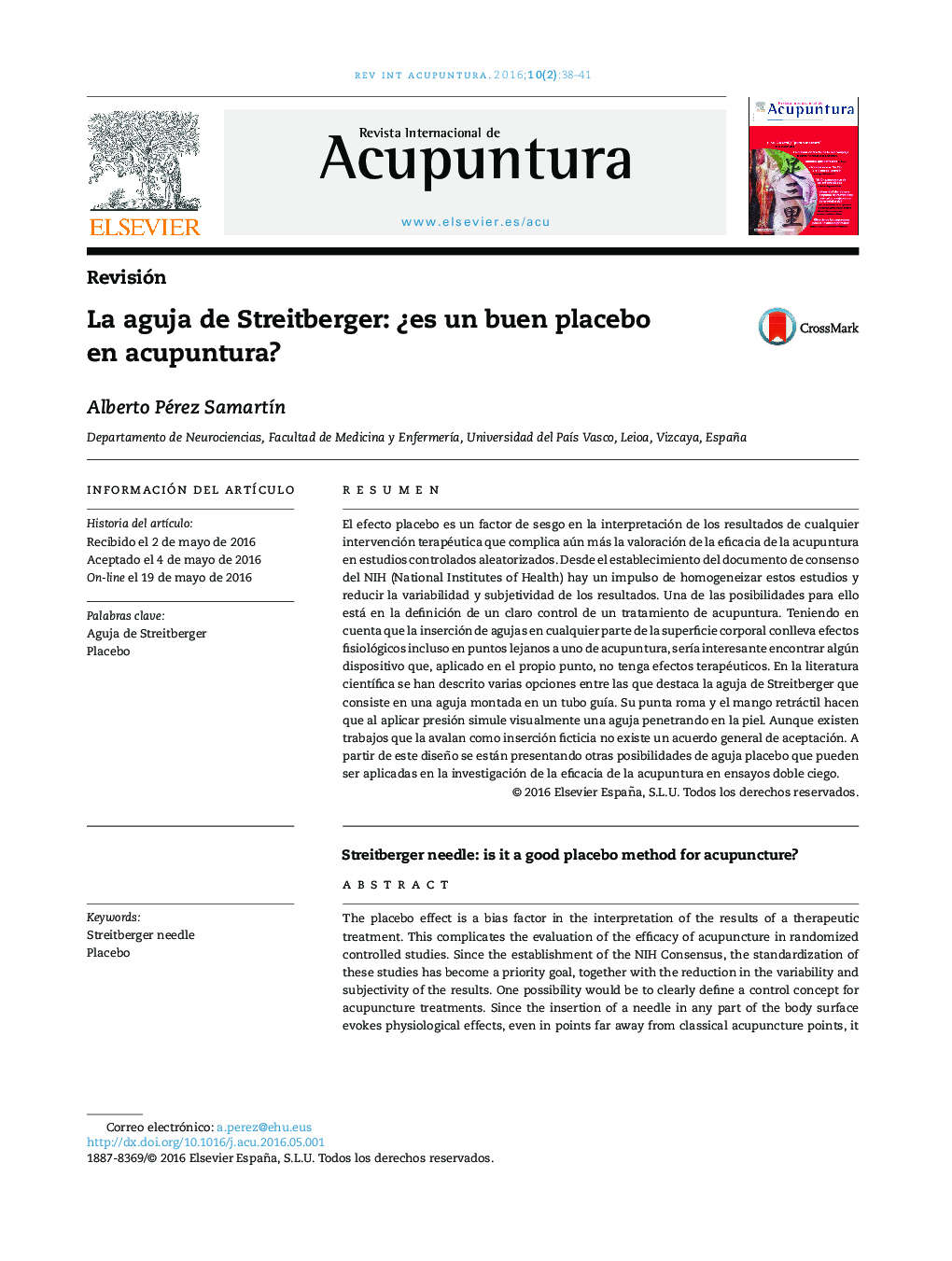| Article ID | Journal | Published Year | Pages | File Type |
|---|---|---|---|---|
| 3102281 | Revista Internacional de Acupuntura | 2016 | 4 Pages |
Abstract
The placebo effect is a bias factor in the interpretation of the results of a therapeutic treatment. This complicates the evaluation of the efficacy of acupuncture in randomized controlled studies. Since the establishment of the NIH Consensus, the standardization of these studies has become a priority goal, together with the reduction in the variability and subjectivity of the results. One possibility would be to clearly define a control concept for acupuncture treatments. Since the insertion of a needle in any part of the body surface evokes physiological effects, even in points far away from classical acupuncture points, it would be interesting to find a device in which the application over an acupuncture point did not provoke therapeutic effects. The Streitberger needle may be of interest in this regard. This needle is attached to a guide tube and the needle handle is retractable. When pressure is applied, the patient cannot distinguish it from a real needle penetrating the skin. Although there are many studies which support the use of the Streitberger needle, no general consensus regarding its effects has been reported. Apart from the Streitberger needle, other placebo needles are currently being developed for application in double blind assays.
Related Topics
Health Sciences
Medicine and Dentistry
Complementary and Alternative Medicine
Authors
Alberto Pérez SamartÃn,
